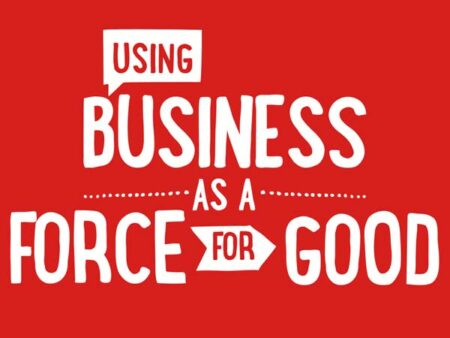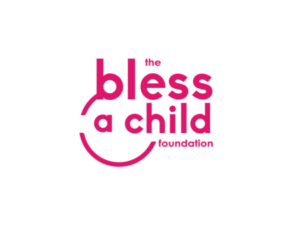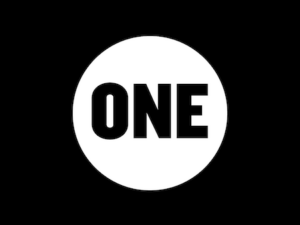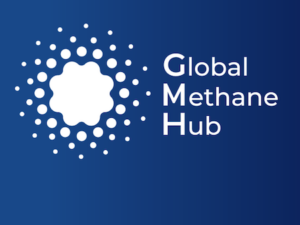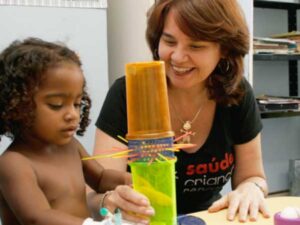B Lab manages the standards and certification process for B corps, meaning companies that have committed to principles of stakeholder governance. The definition of stakeholders is wide, including the environment, the workers, the communities where businesses are located, and more.
Eleanor Allen of B Lab spoke with Lissa Harris on April 13, 2023. Click here to read the full conversation with insights highlighted.
Lissa Harris: Could you please start off by introducing yourself and your organization and say a little bit about the problem that you’re working on?
Eleanor Allen: I am Eleanor Allen. I’m the lead executive at B Lab Global, and we hold standards and certification for companies that want to be certified as B corps, which means they have embraced the concept of stakeholder governance. It’s a different way of doing business, not just making shareholders wealthy, but also looking at all the stakeholders. We look at the environment, the employees and workers, the communities where the businesses are, the way that companies are run, and the customers in the supply chain, and really look at reducing the negative social environmental impacts and improving the positive impacts. We hold the standards, we do the certification, but we’re also leading a movement not just with B corps but for other like-minded businesses that want to change the global economic system to be more equitable and regenerative.
Lissa Harris: Can you talk a little bit about who benefits from your work? Is there a typical company that is interested in what you do or who’s the target for your project, and how do they benefit from the work that you do?
Eleanor Allen: I would say there are two different types of companies. Right now we have over 6,500 companies that are certified. The movement started 17 years ago with smaller companies that were purpose driven. Born Bs, we call them inside B Lab. They were interested in things like using recycled plastics to make jewelry or doing biodegradable soap, products that are really purpose driven. These companies were set up as being purpose driven, and getting B corp certification was a way to amplify the purpose.
As we’ve evolved over the 17 years, it’s also about bringing in mainstream companies that have another product, like maybe they make paper products but they want to use our system and tools to say, “Hey, we could do better paper products if they were from sustainable forests and we reduce the amount of transportation that the trucks move the paper around.” These companies use our standards to improve the way they do their business to make their product better for people on the planet.
An exciting part of our scaling now is the companies that have huge impacts on the world, that didn’t think about these things when they were started, but have become sort of enlightened to improve things aside from selling more products. They think, “I can improve the people on the planet. Let’s figure out a way that I can change my business, take responsibility for my actions and the negative impacts we make and improve the positive impacts.”
Lissa Harris: You have these two different tracks that a business will follow to get involved with you. For these larger companies that might have not set out initially to become a B corp, maybe it’s less embedded in their DNA that they want to do this socially environmentally responsible action, what is the impetus for them to come to you and what do they get out of participating with the program?
Eleanor Allen: There are different drivers that bring people to us, and some we don’t even know. We know we have 6,500 plus certified companies, but they’re over 200,000 using our tool. We are also super curious about these companies and what they are doing here. But generally, there are a couple buckets. For some, it’s to let consumers know about how they run their company. For example, I have a Patagonia coat on. They’re really well known for how they recycle their plastics and reuse products. Some companies get certified to amplify how the company is run. It’s an amplifier. For example, attracting consumers who are deciding which yogurt to buy by looking at which is better, which treats the cows better. So, there is the business-to-consumer angle.
Then, there are others that are about making employees’ experiences better. Employees choose to work for a company where they can have a better employee experience, but also a company who is taking responsibility for the environmental degradation they’ve caused, so recruiting and retaining employees. And also those that are dealing with difficult issues, like how to get fair wages to workers all over the world. They need a tool to help. Or those that want to reduce their carbon emissions. They need a tool to help.
Companies look at specific impacts they want to reduce and then improve the process. Some B corps are really internally focused about business process improvement to make more money, some don’t because they have to make changes that are costly and they’re okay with that because they know that they’re changing the way the company works. The drivers that bring companies into the B corp idea are all different, and some go through the certification process and others use some of the standards but don’t go through the whole certification process.
Lissa Harris: If they follow the standards without restructuring fully as a B corp, is there a certificate that they get that says that they follow that standard?
Eleanor Allen: No, we only have one product, which is the certification. We’re talking about what else we could do, but we are resource limited. We are a nonprofit, but it would be nice to have other places to meet companies on their journey. If there are 200,000 companies doing something, what are they looking for and can we help them? It’s all passive now. We don’t do anything with them except the ones that actually hit submit and go through the certification process.
There is a legal requirement, we call it “mission lock”, to put it in your articles of corporation, either to become a public benefit corporation or to change your articles to state that you embrace all your stakeholders, not just shareholders. And that stops some companies, but if that stops you, then you shouldn’t be a B corp because that’s very much core to who we are. Also sharing how you scored on the B impact assessment on our website so anyone can see what your performance scores are. That transparency is really important as well.
Lissa Harris: I imagine that there are some logistical issues involved. For example, if a company doesn’t start out aiming to get B corp certification, they have to bring their whole tax structure around to a different method.
Eleanor Allen: Yes. As we’ve gone through the years, more global companies, subsidiaries, multiple geographies are coming in, and those take many years because we do draw a circle around things like, what is your supply chain, and where do your consumers go? You have to be able to track all those things, and sometimes, that’s very complicated. Sometimes, there’s major things they need to change. The assessment has 200 points and a company has to have 80 to meet the certification minimum. Sometimes, they’ll do the first assessment and they’re like, “Oh, I’m at 60. Well, I’m going to take the next three years to reduce waste and recycle more and have less go to the landfill,” or whatever they decide they want to focus their improvements on. Especially with the larger, more complex companies.
Sometimes, it’s a menial process to even get to the ability to get your first certification, and then the idea is that’s your baseline. Every three years, you recertify and you get better. Meanwhile, we’re also improving the standard so it gets harder, but we’ve seen a lot of these longer journeys with more complex companies, which is fine because they’re making huge changes, and that’s really the system changes that we want to see.
Lissa Harris: You mentioned supply chains. If the larger company at the end of the supply chain is taking this seriously, are you able to see the impact where they can bring their influence to bear on the supply chain so that other companies are coming along with them? Or are there challenges in that realm?
Eleanor Allen: It depends on the company and how they’re structured and what their supply chain looks like. If we certify a company that is part of a parent company with the same name, it triggers up as well. You need to look at your parent corporation and bring them into certification. Sometimes that is a very long journey, but that’s the whole idea. If you’re going to use the same name, we don’t want to have consumer confusion like, okay, I could buy the products in Australia, but what about the ones in Brazil? We want them to be also on the journey.
Lissa Harris: What makes your approach distinctive from other organizations that are working on similar problems? What makes you different?
Eleanor Allen: There are lots of other actors working in the space of stakeholder governance and stakeholder capitalism, which is great. We’re part of a bigger community. But our unique value proposition is a performance management system that’s voluntary. There are a lot of tools out there that you can report on what you’re doing today in terms of social impact, on the environment, for example. We analyze all aspects of a company’s operations and provide them their score today, at the beginning of a journey for improvement. Focusing on performance management for companies in a very holistic way makes us unique.
Lissa Harris: Can you share an example that shows the impact of the work that you do?
Eleanor Allen: Sure. We were just talking about Patagonia, so I can share an example with that company. In March, Ryan Gellert, the CEO, was on stage at South by Southwest talking about the culture of the company. He brought up B corp. The way he described it was really interesting. He said, “We embraced the certification. It’s made us a better company in all aspects, and it’s also told us we don’t need to continuously grow to be who we want to be, to do our purpose. We don’t have to sell more Patagonia jackets, but we need to be better at reducing the amount of newly sourced materials and recycling. Our purpose as a company isn’t just about sales growth, it’s about improving the way the company works, but people are still buying jackets.”
I had never heard a company say that. I didn’t know that was part of Patagonia’s business philosophy, so that was really interesting to hear. Now, I’m curious which other companies are deciding that growth isn’t the only option. You can grow, do whatever you want. But it was really interesting to hear him say that it’s still fulfilling to that company and to the workers doing the best job they can, that doing their work doesn’t have to mean you’re always growing. You’re just improving.
Lissa Harris: What insights or teachable lessons can be taken from your work that other organizations in this space can use and learn from?
Eleanor Allen: Several things come to mind as things that I’m personally working on as a leader as we continue to evolve and mature as an organization. Partnerships. We’re sort of generalists, working across the whole business, so who can we partner with that’s really good at labor rights, really good at climate, really good at different things, so we don’t have to have experts. How can we work together with other reporting standards so that if you’re a company you don’t have to get a B corp and also the SBT [Science Based Targets] certification for reducing greenhouse gas emissions. You can just do one. Definitely collaborative partnerships where we can take advantage of each other’s expertise in the space.
Another more personal part of my mission and drive is how to get more companies into this stakeholder governance world and change the economic system of companies from disadvantaged communities or vulnerable communities that feel like, “I can’t do that. That’s too expensive and too complicated. I don’t have someone to fill out the form.” How can we also include them in this movement but in a way that’s not making them adapt to us, that we can adapt to be inclusive to those types of companies?
It’s been stressful for those smaller purpose driven companies to have the bigger companies come in. It’s still the same standard. They have to meet the same criteria, but it’s making the space for both the smaller and the medium and the larger companies — but also these companies that are not as visible. I don’t know how to do that yet, but it’s something we’re definitely working on and thinking about. We’re global, so that’s more appropriate for lower income companies, those in emerging markets where companies are in a different state of how businesses run. We need to be a bit more flexible if we truly are going to continue our global scaling and change the global economic system. The economic situation is different in different parts of the world. Who can we collaborate with in those spaces so we don’t have to start from scratch?
Lissa Harris: Can you talk a little bit about metrics, how you measure success, and what’s the evidence that you’re making progress?
Eleanor Allen: One metric is the number of companies, so that’s pretty easy to measure. We got a huge backlog during COVID, so one stressor of my job is getting companies through because the longer you wait, they may have applied months or a year ago and have totally changed now and might have to redo the assessment. We don’t want that to happen. I think that the more interesting systems change metrics are, how are we changing the legal and regulatory systems? We’ve worked on a lot of legislation in the U.S. for benefit corporations by state, public benefit corporations. Now, we’re working with countries all around the world and working in capital markets, setting up indices for either purpose-driven companies or B corps that people can invest in publicly traded companies.
The legal and regulatory system changes, that’s the big picture. We have to continue to do that, and think about, although the actual community of certified companies is small, how do we have this bigger community of committed companies that are using our tools or someone else’s tools, and are committed to doing better? How do we educate and bring them in to learn there’s a different way of running business? It doesn’t just have to be making your shareholders wealthy. There’s other ways to do business. I don’t know how we measure those metrics though. I think one thing for us particularly is this, all these people using our tools figure out some metrics to see what they’re doing and then measure our progress, figure out how we can get more companies in that are not the traditional either Born Bs or mainstream companies, but are more of the companies that are less represented and figure out that metric for that.
Part of our standard is justice, equity, diversity, inclusion. We need to develop those metrics. We don’t have them now, and how do we know we’re changing the system? I mean, we see evidence of that, but we’re not necessarily measuring it and saying this is how many countries adopted a law for stakeholder governance last year, and this year, we have five more. We haven’t done that, so that’s hopefully coming soon. I think specific metrics on policies, systems change and other ways to measure the companies in the movement are things we need to work on instead of just counting the number of companies, which is always going to be done as well.
As we’re working on our strategy we have to consider where we want to proactively spend our efforts. What geographic markets do we want to grow? To date, it’s been very organic and very entrepreneurial and the companies have been coming to us. If we pivot that slightly, because now we have critical mass in a lot of places, where are the really big opportunities to change the economic system? I think it’s in the high, middle and low income countries but how do we strategically go to those places and do something proactive versus reactive and figure out those measurements?
Lissa Harris: What other metrics that you’re using to decide what new standards get included, how things get incorporated into this certification framework?
Eleanor Allen: Yes, that is actually a huge project called The Evolution of the Standards, which we’re deep in right now. This revision will actually be a whole new standard and is version seven in our course of history. So, right now, it’s 200 points. You need 80 to certify. How you get those points is up to you. There’s some criteria, but this next standard will have some prerequisites, 10, we call them performance requirements. So, you have to do 10 things to be able to go to the next question.
We’re going to lose some companies. We know that. It’s maintaining the rigor, and this is what’s expected of businesses now. This space is moving really fast, and we need to keep up with it. We need to keep our credibility and our integrity as a certifying organization and our standards. This process of developing new standards requires public consultations. We did one last fall. We’ll do one again this fall and then a lot of input on what’s the right next version, which is going to be really interesting, but it’s very complicated. It takes a long time because we want to make sure we do it through an inclusive process, and there’s a lot of opinions as you can imagine, from different viewpoints, which are all valid. We want to make our best decisions with as much input as we can get.
Lissa Harris: For social innovators, sometimes, you learn as much from things that don’t work as things that do. Could you describe something that you tried that didn’t work that you learned something important from?
Eleanor Allen: We had such an unexpected boom in COVID. A huge backlog was created, and our response was let’s just hire people. But what we didn’t do was step back and say, our system – the software we’ve built – is actually not scalable even if we throw more people at it. Now we’re in the process of this new standard and it’s actually a great opportunity to think about what platform we actually need that is much more scalable. How can we optimize technology? How can we use AI, machine learning, to the biggest benefit as possible and make the process more efficient so it’s scalable?
We’re in this transformation now, trying to figure that out. We are getting more companies through, but we didn’t change, we didn’t create efficiencies. We actually created more complexities. The bigger we got, the more people, the company got more complex. Trying to figure out the steps to get there, how to be scalable and how to take the time to plan and properly think about those steps to get to that point instead of urgently panicking and just hiring people to get more companies through. That wasn’t a long term solution.
Lissa Harris: Setting aside the issue of funding, because that’s a struggle for everyone, could you talk about challenges that you’ve faced or that you’re currently facing that you really haven’t been able to overcome or solve yet?
Eleanor Allen: There are many. I would say depending where you are in the world, the public perception is different. For example, in Europe, the EU directives for ESG [environmental, social, and governance] are really shaping our standards. We want to make sure we’re compatible so we don’t become irrelevant in that space. In the U.S., there’s this whole anti ESG movement, which is interesting but also disturbing. Why has this become a political issue? This is good business, so what is our narrative then? We’re all of a sudden on the defense and we want to be on the offense, sharing the stories of these amazing B corporations that are really changing the way business is done.
Being able to get ahead and tell our story, we don’t spend a lot of time doing that because we’re busy working. That’s a challenge right now, particularly in the U.S. which is still our biggest market. There are tons of opportunities in the U.S. for this movement. The social parts of our work are more controversial depending where you are in the world than environmental or human rights and things like that. We don’t want to compromise our standards, so how do we navigate the situation?
I run B Lab Global, which holds the standard of certification. We have geographic partners that source the companies. They find the companies in their regions, and they come to us. How can we do this more connected? We call it our interdependence. We are absolutely married, we must work together, but we’re different teams. So, how can we be better as a global organization because we’ve grown so much? Our own ways of working and scaling and the global governance of how we work as a movement but also as a certification organization is something that I’m really interested in because it’s strategy governance, which makes it instantly complicated but so important. If we don’t get it right, we’re hurting ourselves. So, that’s another thing that we’re working on right now is how do we continue to be fit for purpose as this movement continues to grow.
Really, our purpose is about education when it comes down to it. We’re educating companies in a different way of working. So, one thing we’re also working out with the new standards is, how can we be much more organized and professionalized in the curriculum we offer to companies, individuals, academic students, whoever wants to know about our standards, and they complete certification or the other products and tools? We have some other products about benchmarking and aggregating companies and things like that as well. Getting that education curriculum and platform out there with the new standards, that’s another opportunity because we have the new standards, but we haven’t done that before, so we got to figure that out.
Lissa Harris: You’ve touched on a lot of this already, but I wonder if there’s more you want to say about how you’re working to advance systems level change in this space? How specifically are you trying to get some of this big picture change rolling?
Eleanor Allen: We engage in very intentional and deliberate system change work at the national and mostly in the U.S. state levels. I would say Canada too, legislation and regulations work by province. We are working to have a voice on the EU directives and the current Biden administration’s ESG work here in the U.S. and other countries like Brazil, we have a lot of activity with the government. Japan’s doing a lot right now, so there’s pockets around the world.
Another part of systems change that is quite interesting that I’m thinking about today because I’m at the Skoll World Forum, is we have many academic partners. I was with some students last week at the University of Colorado that are in a business sustainability class. It’s now becoming part of some business schools to teach stakeholder governance and stakeholder capitalism. They actually do a capstone project where they go through and certify companies. This is changing the system. If we can get students who understand this from the get-go before they even get their first job, oh my gosh, that is a whole new generation of opportunity, like orders of magnitude more.
One of my takeaways from this week is, how do we be much more strategic on this part of what we do? If we’re going to do an education curriculum, how do we also do more partnerships with academia? We have some. We have a big B academics group, but of the number of academic institutions out there, we’re tiny still. I hadn’t thought of that as part of our systems change until this week, but it’s such a way to change our system, to have a whole generation of business people who know what that is. That’s one of my really inspirational takeaways from this week is thinking about students and starting from the beginning, starting when they go and start their businesses.
Lissa Harris: What do you think is most needed from other actors or partners in your space to achieve systems level change? What’s needed from other entities to bring about your vision here?
Eleanor Allen: Understanding how system change works for businesses, and that comes to learning the stories from individual businesses, and then also why it’s been a positive experience for those businesses to change how they do their business. Because there’s a lot of misinformation that maybe you have to sacrifice things to become a B corp, but it’s not necessarily true. We’ve started an evidence-based group. Our own publication is called Insights because we have so much data now that we are publishing on different topics. A lot is on financial returns, and it’s mixed. Some companies continue to have higher returns, and some don’t because they’ve made other material changes that they’ve decided were more important than continuing to make more money. There are these buckets of knowledge now of case studies on the different parts of the work we do. Environment, social, gender, finance. I’m just picturing the library table of contents in my mind. I think there might be 12 topics or something that are on there.
Our team is data scientists, so they’re pulling data from our system and writing case studies. This is going to be really important as we continue to grow. We just opened a fellowship. We thought, okay, let’s bring in two volunteer fellows to do more of this data research with our database. We got 33 applications for this unpaid fellowship. So, we’re like, oh my gosh, how do we actually find a way to use 33 people because we didn’t expect that at all.
I think education is key to those who don’t understand it. The ESG becomes a trigger for people, but let’s just think about this. Let’s understand what it actually means and how it works. It involves educating policy makers, regulators, businesses, politicians, government, and then showing evidence from the data to back it up.
Lissa Harris: How do you see your work evolving over the next five years?
Eleanor Allen: Definitely getting more companies through certification but also creating this bigger community of not necessarily certified companies but continuing to be movement builders for stakeholder governance and the new economy that’s based on stakeholder governance and better business. It’ll be more partnerships, more coordination, more visibility, more data. It’s the movement part of what we do that will be a lot of the rest of the decade.
The companies who continue to certify will help our credibility and bring the data and case studies, but it’s the movement building that’ll have a bigger reach, that’ll be the amplifier. Where do we strategically decide we want to be? Which countries are we not in? India is one. I’ve spent a lot of time working in India. We’re not there. We will get there but we have to get prepared to get there. What’s our strategy for Southeast Asia, for South Asia, and then for Africa as well? I think over the next five to 10 years, it will be different than it is today because that’s where the big growth is in the world. That’s where we want to be, and that’s where the young businesses are. There’s so many reasons why this will all fit together. We just need to make that strategy and get it done.
Lissa Harris: We’ve covered a lot of ground today, but is there anything that we didn’t get to that you thought was really important to discuss?
Eleanor Allen: There’s a component of our work that I want to bring to B Lab, to my employees, but also offer it to B corps as a part of their organizational culture development, and that is personal wellbeing. I’m fortunate as a social entrepreneur to have gone through what was an 18-month turned into a three-year program for personal wellbeing and inner work supported by the Skoll Foundation. It’s totally changed who I am, how I relate to myself, and how I deal with these really heavy issues that I work on every day but with a sense of calm and purpose. To be able to bring that curriculum as part of our offering to B corps and say we want to provide this to be part of your organizational wellbeing. Things are tough today, but the world just gets more and more complicated, so this is a new element that I want to bring in. It’s not there now, but I’m optimistic that it fits really nicely in with our ethos and our purpose and our mission. So, stay tuned for more of that.
Lissa Harris: Wonderful, thank you so much for taking the time to do this.
Click here to read the full conversation with insights highlighted.
Lissa Harris is a freelance reporter and science writer (MIT ’08) based in the Catskills of upstate New York. She currently writes about climate, energy, and environment issues from a local perspective for the Albany Times Union, her own Substack newsletter, and various other digital and print publications.
* This interview has been edited and condensed.
Read insights from what’s working in social innovation.

